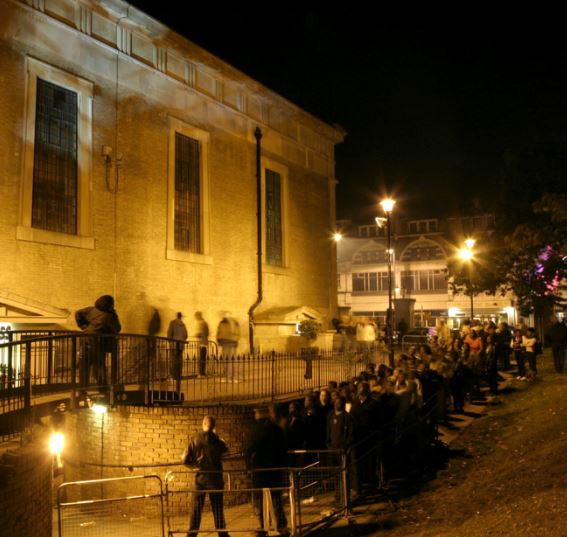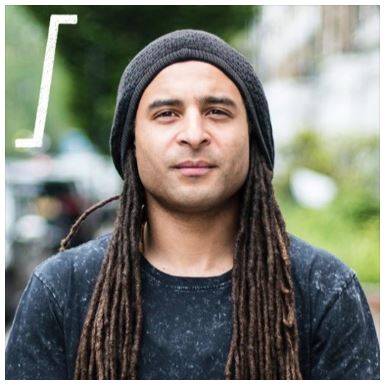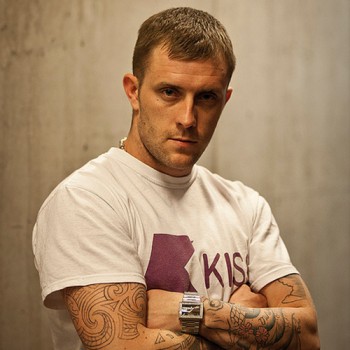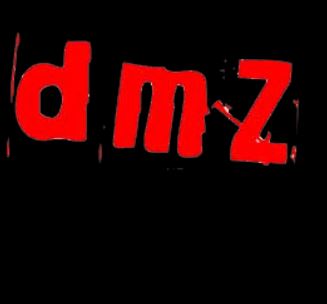
‘I’m not being funny, mate, but that racket’s just not music, is it?’ A drunken thirtysomething wanders past the DMZ club night in Brixton, looking sour. Next to him, the walls of the venue are reverberating with a heavy, rumbling bass. ‘I mean, I used to go raving, but I wouldn’t be able to listen to that stuff. I suppose you lot are all off your heads on pills?’
Loefah, DMZ’s organiser, smiles patiently and explains that people come here because they love the music. Around him a gaggle of shaven-headed boys have already gathered, 10 minutes before the doors are due to open. Their faces are filled with anticipation, bordering on reverence. Dubstep is the most exciting mutation of British dance music since drum’n’bass was tamed and co-opted by car advertisers. For its followers, DMZ is not just a night on the tiles, it is a place of pilgrimage.
Once inside, opportunities for flirting are limited by the meagre illumination, and chat drowned out by the volume. Everyone at DMZ is intently focused on the music. Each time a well-loved tune comes on, the room erupts with unselfconscious energy. The crowd is young, multicoloured and predominantly male, but there is no hint of aggression. People sip beers but no one seems drunk.
The sound of dubstep is hugely varied, and unlike anything else. Some tracks sound similar to twiddly, experimental techno, others draw on the bass-heavy reggae from which the genre takes its name. The beats are often odd, angular, not just syncopated but complex and irregular; snatches of African chanting will be followed by hip hop samples, or the sound of a call to prayer. Anything goes, as long as it has a driving bassline and is played very, very loudly. Only three years old, dubstep is young enough to be wide open to experimentation. Its limits are still being defined by young men making tracks in their bedrooms.
Like grime, the much-hyped British hip hop variant, dubstep started on pirate radio stations such as Rinse FM in the early 2000s. It has morphed into grime’s less socially dysfunctional twin; the aggressive attitude and crude lyrics associated with grime rappers alienated mainstream radio stations and venues. Dubstep, mainly instrumental, has made the transition more easily, attracting a substantial following from the electro and alternative music scenes, in addition to the crossover with so-called ‘urban’ music.
Its musical influences may be diverse but the dubstep scene is united by its attitude. It is essentially a complete rejection of the type of high-end commercial clubbing that has prevailed in Britain since the mid-Nineties. That is why you don’t go to a dubstep night to drink fancy cocktails, to snog on the dancefloor or to get high. ‘London is saturated with bullshit bars where you can go if you want to chat,’ explains Loefah. ‘We’re not interested in that.’
Instead, he and the other two organisers of DMZ, Mala and Coki, set out to recreate the raw atmosphere of the early Nineties jungle scene, where they cut their teeth as teenagers. ‘When we went raving it was all about sound systems, not about watching how that person’s dancing, or what that person’s wearing,’ he says. ‘We wanted to get back to that.’
Alongside FWD>>, the original dubstep night held on Fridays at Plastic People in Shoreditch, east London, DMZ is the scene’s spiritual home. But in the age of internet forums and file-sharing it already has a global following. Dubstep DJs play sets across Europe, in Brazil and even Australia . DMZ put on a night in New York which, says Loefah, sold out with no need for advertising. There is no longer any need for a fledgling music scene to be concentrated in one geographical location. It remains to be seen, however, whether the radical spirit of the genre will survive as it heads for the mainstream. ‘I can see that it might go commercial, like drum’n’bass,’ says Loefah. ‘But since we started, so many unexpected things have happened that I’m learning not to make predictions. Let’s just wait and see.’
Alice O’Keeffe
DMZ Club Night
Mass, London SW2
Original Source: The Guardian






Be the first to comment